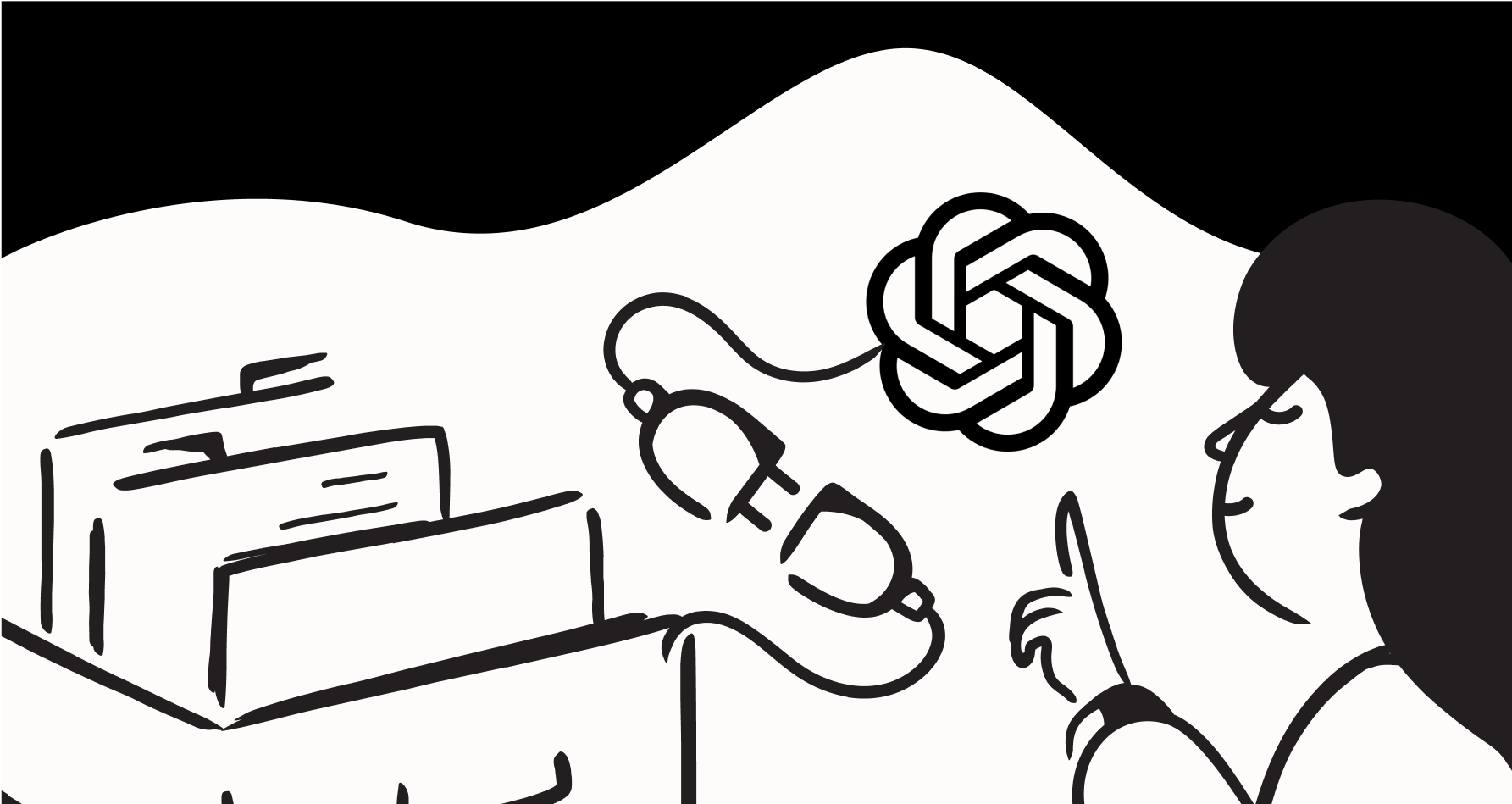
Let's be honest, most off-the-shelf software feels like a compromise. It solves about 80% of what you need, but that last 20% is where your business’s unique magic really happens. Generic tools just can't grasp the tiny details of your customers, your internal workflows, or the specific jargon your team uses every day. And that’s where you start hitting a wall.
What if you could build a tool that was trained only on your business data? That’s the whole idea behind custom machine learning solutions. They let you create smart systems that learn from your information to automate tasks, predict what might happen next, and give you a genuine edge over the competition.
This guide will walk you through what these solutions are, the traditional (and frankly, painful) way they're built, and how a new wave of platforms is making it possible for just about any business to build its own custom AI, no data science PhD required.
So, what are Custom machine learning solutions?
At its heart, machine learning is just about teaching computers to learn from data so they can make decisions or predictions on their own. Think of it like a new hire who gets a little bit smarter and faster with every task they complete.
So, what makes a solution "custom"? While the AI tools you read about in the news use generic models trained on huge, public datasets (like, the entire internet), Custom machine learning solutions are trained on your private, specific data. This could be thousands of your past customer support tickets, your internal Confluence wiki, product guides living in Google Docs, or your Shopify product catalog.
By learning from your own information, a custom model starts to understand your business’s unique context. It picks up on your brand’s tone of voice, learns the right answers to super specific questions, and gets a feel for your internal workflows.
This tailored approach gives you a few major wins. The AI provides answers that are actually relevant to your business, not just generic fluff. It can also perform actions that fit right into your workflows, like figuring out which team a support ticket should go to or looking up an order status. You end up building an intelligent system that your competitors can't just copy because they don't have your data.
In the past, getting a custom model meant hiring an expensive team to build it from scratch. But that’s changing. Modern platforms like eesel AI let you create highly tailored AI agents that learn from your own knowledge sources, all through a simple interface you can manage yourself.
The old-school (and painful) way to build custom machine learning solutions
Before we jump to the easy way, it helps to understand the old way. Building custom machine learning solutions from the ground up is a marathon, not a sprint. It's a complicated, multi-step journey that demands deep expertise, a ton of time, and a pretty significant budget.
Here’s a quick look at what that process typically involves.
Step 1: Defining the problem
It all starts with a simple question: What business problem are you actually trying to solve? Is it about cutting down response times for customer support? Or maybe trying to predict which customers are likely to cancel their subscriptions? You have to nail down the goal, decide what success looks like, and figure out if you even have the right data to begin with.
Step 2: Collecting and preparing data
This is where most projects get bogged down. You have to gather all the relevant data, which is often scattered across a dozen different systems. Then comes the "cleaning" and "labeling" part, which is just as tedious as it sounds. You have to format everything correctly, hunt down errors, and manually tag the data so the model can understand what it's looking at. This step alone can take months and is what most data scientists spend their time on.
Step 3: Choosing and training a model
Next, the team has to pick the right machine learning algorithm for the job. There are hundreds of them, and the best choice depends entirely on the problem you're trying to solve. Once an algorithm is picked, the training starts. This means feeding all that prepared data into the model, which takes a massive amount of computing power (and that doesn't come cheap).
Step 4: Evaluating and tweaking the machine leaning model
Once the first version of the model is trained, it's time to see if it actually works. The team tests its performance using a separate set of data the model has never seen before. It almost never works perfectly on the first go. This kicks off a long process of "hyperparameter tuning," which is a fancy way of saying they tweak the model's settings over and over again to make it more accurate.
Step 5: Deployment and integration of your custom machine learning model
Getting a model to work on a single computer is one thing; getting it to work inside a live business environment is a whole other beast. This step involves some pretty complex engineering to hook the model up to your existing systems, like your helpdesk or CRM. This whole field, known as MLOps (Machine Learning Operations), is a specialized discipline all on its own.
Step 6: Monitoring and maintenance
The job isn't done after the launch. The team has to keep a close eye on the model's performance to make sure it's still doing its job correctly. Over time, models can experience "drift," where their predictions get less accurate as new, real-world data starts to look different from the data they were trained on. This means you have to constantly retrain and redeploy the model to keep it useful.
What can you actually use custom machine learning solutions for?
All that effort has to be worth it, right? It is. When done right, custom machine learning solutions can completely change how parts of your business operate. Here are a few real-world examples of how companies are using them.
Making customer service and support better with custom machine learning solutions
We've all dealt with those generic chatbots that just get in the way. A custom model, on the other hand, can provide support that’s genuinely helpful. Imagine a bot that can automatically answer common customer questions with pinpoint accuracy, intelligently send support tickets to the right team, and give human agents AI-powered reply suggestions that are actually useful.
This is exactly what eesel AI was built for. It’s a perfect example of putting custom machine learning to work for support teams. You can connect it to your helpdesk, whether that’s Zendesk or Freshdesk, and feed it your knowledge from places like Confluence or Google Docs. The result is an AI agent that understands your business inside and out and can start closing tickets from day one.
Personalizing e-commerce and marketing with custom machine learning solutions
One-size-fits-all marketing campaigns just don't cut it anymore. Custom models can analyze how users behave to deliver experiences that feel personal and relevant. They can power recommendation engines that suggest products a customer will actually love, or create personalized email campaigns based on someone's browsing history and what they've bought before.
For example, the eesel AI Chatbot can be trained on a Shopify product catalog. This turns it into a 24/7 sales assistant on your website, ready to answer specific product questions and provide personalized recommendations to help drive sales.
Improving how you work internally witth a custom tool
Your employees have questions, too. Custom ML can streamline your internal processes and make it much easier for your team to find the information they need. Think about automating common IT support requests, instantly answering employee questions about HR policies, or creating a powerful internal search tool that pulls information from all your company's documents.
You can deploy eesel AI's Internal Chat right inside Slack or Microsoft Teams. By training it on your internal wikis and documents, you give your team an AI assistant that provides instant, accurate answers, freeing up your support staff to focus on more complicated problems.
Why building your own custom machine learning solutions is so hard (and how it's getting easier)
So, we agree that custom ML is powerful. But as we just saw, the traditional path is full of roadblocks that stop most companies before they even get started. The time, cost, and specialized knowledge required have kept these solutions out of reach for everyone but the biggest tech companies.
But what if you could get the power of a custom model without the pain of building it from the ground up? That’s what modern AI platforms are all about. They handle all the heavy lifting behind the scenes, so you can just focus on the results.
Here’s a quick comparison of the old way versus the new way.
| Challenge | The Traditional Approach (Build from Scratch) | The Modern Approach (with eesel AI) |
|---|---|---|
| Time & Cost | Months or years of development; requires hiring expensive data scientists and ML engineers. | Go live in minutes. A fully self-serve platform with clear, predictable pricing. No developers needed. |
| Data & Training | Requires massive, perfectly labeled datasets and complicated manual training processes. | Instantly connects to your knowledge. Automatically learns from past tickets, help centers, Google Docs, and more. |
| Control & Customization | Requires complex coding to define rules, actions, and persona. Difficult to update. | Full control with a simple UI. A no-code prompt editor lets you shape the AI's personality, limit its knowledge, and create custom actions. |
| Risk & Deployment | High risk of failure. No easy way to test before launch, which can lead to bad customer experiences. | Test with confidence. A powerful simulation mode lets you test the AI on thousands of past tickets before it ever talks to a customer. |
Let's break down what this "modern approach" actually feels like in practice.
It’s surprisingly simple. With a platform like eesel AI, you can sign up, connect your helpdesk and knowledge sources in a few clicks, and have a basic AI agent running in minutes. There are no mandatory sales calls or long demos, which is a big change from competitors who lock you into a sales process before you can even try the product.
You’re in complete control. You don't have to automate everything all at once. eesel AI's workflow engine lets you decide exactly which tickets the AI should handle. You can start with simple, repetitive questions and let everything else go to a human. You can also define the AI's personality and give it special abilities, like looking up order information or adding specific tags to a ticket.
You can test without the risk. Letting an AI talk to your customers can feel a little scary. What if it says the wrong thing? eesel AI’s simulation mode really helps here. It lets you test your AI on thousands of your past support tickets in a safe environment. You can see exactly how it would have responded, get solid forecasts on how many tickets it could solve and how much money you’d save, and fine-tune its behavior before a single customer ever speaks to it. It takes all the guesswork out of the launch.
Watch this video to learn more about custom machine learning models.
The future of custom machine learning solutions is for everyone
For years, Custom machine learning solutions have been a secret weapon for big companies, giving them a powerful way to turn their own data into an advantage. The only problem was that building them required a massive investment in time, talent, and money, leaving most businesses on the sidelines.
That era is over. The rise of modern, self-serve AI platforms has completely changed the game. Businesses no longer have to choose between a generic, one-size-fits-all tool and a multi-year, multi-million dollar science project.
Platforms like eesel AI give you the best of both worlds: the power and specificity of a custom-built solution with the speed and simplicity of off-the-shelf software. You can finally create an AI that is truly yours, trained on your data and tailored to your workflows, without writing a single line of code. The future of custom ML is here, and it's more accessible than ever.
Ready to build your own custom machine learning solutions for customer support in minutes? You can start your free eesel AI trial today or book a demo to see it in action.
Frequently asked questions
You should consider a custom solution when generic tools fail to understand your specific business context, terminology, or workflows. If you find yourself constantly working around the limitations of an off-the-shelf tool, it's a good sign that you'd benefit from an AI trained on your own data.
Reputable platforms prioritize security and are built with enterprise-grade standards. Your data is used only to train your model and is not shared or used for any other purpose. Always look for providers who are transparent about their data handling and privacy policies.
Modern platforms have moved away from the old model of expensive, multi-year projects. They typically use a subscription model (SaaS) with predictable pricing based on usage, which eliminates the need for a large upfront investment in hiring a specialized team.
Not with modern no-code platforms. They are designed for business users, allowing you to connect data sources, customize the AI's behavior, and monitor performance through a simple user interface. The platform handles all the underlying technical maintenance and updates for you.
You likely have enough data already, so don't let that stop you. Modern platforms don't require massive, perfectly labeled datasets and can learn effectively from your existing knowledge bases, like help center articles, past support tickets, and internal wikis.
With platforms like eesel AI, you can go live in minutes and start seeing results almost immediately. Features like simulation modes even let you forecast your ROI by testing the AI on past data before it ever interacts with a live customer, removing the guesswork.
Share this post

Article by
Kenneth Pangan
Writer and marketer for over ten years, Kenneth Pangan splits his time between history, politics, and art with plenty of interruptions from his dogs demanding attention.






